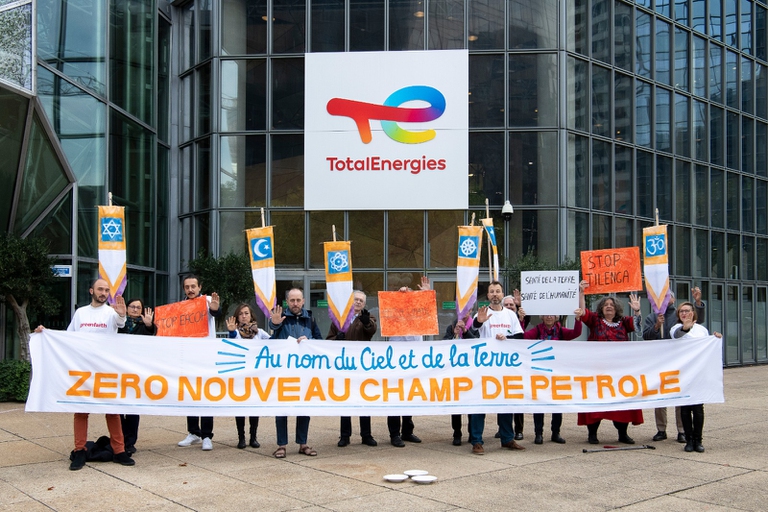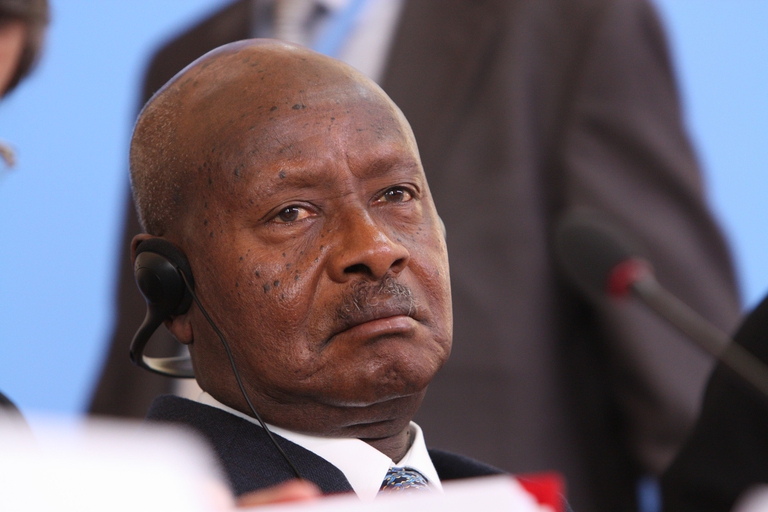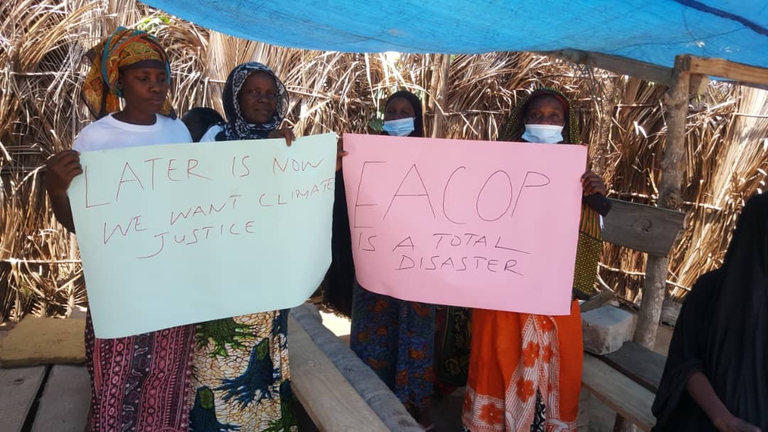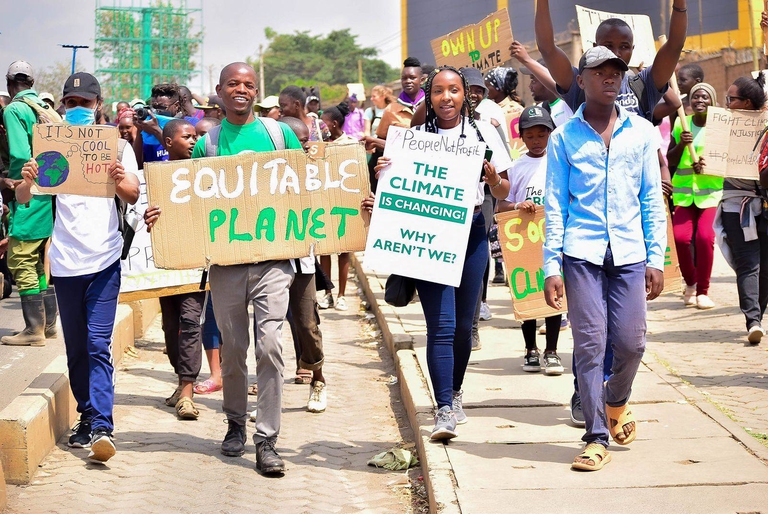
The climate impact of the U.S. Gulf of Mexico’s oil and gas production could be higher than government inventories indicate.
The world’s longest heated oil pipeline in Uganda negates global climate action while directly subjecting millions of livelihoods to disruption and food insecurity.
The East African Crude Oil Pipeline (EACOP) project involves the construction of a 1,443 km crude oil pipeline that will run from Kabaale in Hoima, Uganda to the port of Tanga in Tanzania, and a storage terminal and loading jetty in Tanga, among other facilities. Once completed, the project in question will be the world’s longest heated crude oil pipeline and it is being carried out by transnational corporations TotalEnergies and China National Offshore Oil Corporation (CNOOC), alongside the national oil companies of Uganda and Tanzania. TotalEnergies operates the Tilenga oil field, while CNOOC operates the Kingfisher field.
Project developers claim that EACOP would enable Uganda to unlock value from its own natural resources, coupled with attracting a significant investment of more than $4 billion across both Uganda and Tanzania. But activists have rubbished the project, saying the development would be disastrous for local communities, wildlife and the entire planet and that it would reverse the global climate action goals that have been achieved.
Meanwhile, Ugandan President, Yoweri Museveni has lambasted environmental rights groups for decrying the construction of the East African Crude Oil Pipeline saying, “Some of these people are insufferable. You need to control yourself not to explode. They are so shallow, so egocentric, and so wrong but they think they know everything; this is our oil and they should keep quiet. The West should calm down because this is the wrong battleground for them. We don’t take kindly to arrogance.
“Recently, there was yet another manifestation of Imperialistic arrogance and hegemony by elements in the European Union Parliament whereby they decreed from Brussels that the East African Crude Oil Pipeline should not be constructed until those arrogant actors permit us to do so. Parasitic elements from that part of the world, have been causing problems for Africa and the World for the last 500 years,” Museveni concluded.
Several French Non-Profit Organisations and local authorities have successfully filed a lawsuit against oil company TotalEnergies in a French Court. The lawsuit is based on the 2017 duty of vigilance law. The plaintiffs allege that the company in question did not include enough detailed information in its vigilance plan to reduce emissions. “The project plunges numerous families into poverty; we’re demanding for it to be suspended immediately,” said Louis Cofflard, a lawyer for the plaintiffs.
Furthermore, similar cases were filed in the Ugandan high court in 2019 and the latest was registered in 2021 when a group from the United States of America applied to the High court of Uganda as amicus curiae to “save Uganda and Tanzania from the looming EACOP environmental disaster”. Unsurprisingly, the High court swiftly dismissed the lawsuits, calling them baseless and biased.
“This project will rip through some of the world’s most ecologically diverse regions. The pipeline will pass through Murchinson falls, home to a number of iconic and endangered species such as the African elephant, buffalos, Rothschild giraffes and the red colobus monkey. And worse, this pipeline will also go through Bugoma Forest and the Lake Victoria basin, which over 40 million people from Uganda, Tanzania and Kenya rely on. An oil spill would prove disastrous to the millions of people that depend on the lake for water and food, said Charity Migwi, Regional Campaigner, in an interview.
In addition, Migwi stressed that the development would wreak havoc on the sensitivity of ecosystems such as the Murchinson falls, which have been a great tourist attraction site for decades, accounting for about 7% of Uganda’s GDP and creating more than 600,000 jobs. “There are a lot of different options that offer more benefits than the EACOP project would ever reap for both the economies of Uganda and Tanzania. EACOP is merely a high-risk shortsighted project that will plunge the economies of East Africa into debt,” she concluded.
Benard Kioko Ndaka, the founder of Green Economy for Kenya, says the construction of a gigantic crude oil pipeline when the whole world is shifting to renewables was unfortunate. “The Ugandan government must know that real sustainable economic strength will come from celebrating the country’s iconic biodiversity. We believe that investing in sustainable industries like tourism and in reforestation programs will not only provide more jobs but also contribute towards the Gross Domestic Product.”
According to media reports, land valuation, acquisition and compensation processes associated with the development of the oil fields have been allegedly carried out in a way that has exacerbated, rather than mitigated the crisis in recent years. Unfortunately, the situation has pushed thousands of local inhabitants into increased impoverishment, livelihood disruption, economic hardship and severe food insecurity. In addition, some community members and civil society activists have complained that the project developers have resorted to silencing vocal critics with intimidation, harassment and arbitrary detention.
Siamo anche su WhatsApp. Segui il canale ufficiale LifeGate per restare aggiornata, aggiornato sulle ultime notizie e sulle nostre attività.
![]()
Quest'opera è distribuita con Licenza Creative Commons Attribuzione - Non commerciale - Non opere derivate 4.0 Internazionale.
The climate impact of the U.S. Gulf of Mexico’s oil and gas production could be higher than government inventories indicate.
ReconAfrica hunt for oil and gas threatens vital waterways home to the world’s largest elephant population and endangered wildlife
Despite environmental warnings, the Tanzanian government is set to build a dam in the heart of the Selous Game Reserve, a UNESCO World Heritage site.
Researchers from the IFM at Deakin University in Victoria, Australia have tested a novel method for removing silicon from used solar panels.
The Congolese government is allowing energy firms to bid for access to its vast oil and gas reserves, risking terrible ecological and climate effects.
The US government has approved ConocoPhillips’s controversial Willow Project to drill for oil in Alaska’s National Petroleum Reserve.
Environmental activists say the EACOP pipeline will damage Uganda’s iconic fragile ecosystem and the livelihoods of tens of thousands of people.
The EU has banned the sale of new petrol and diesel cars and vans from 2035. From then on, new cars and vans sold in the EU must run on other fuels.
Environmental activists have accused Eskom of emitting toxic chemicals that are costing thousands of lives and changing rainfall patterns.











